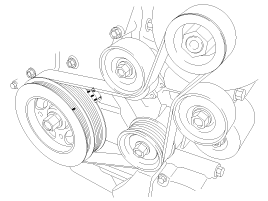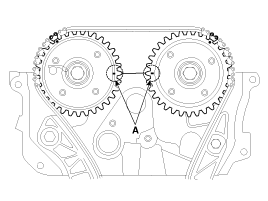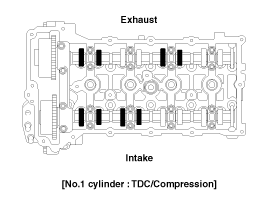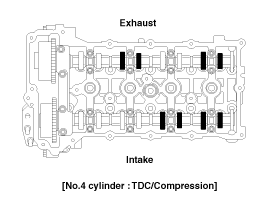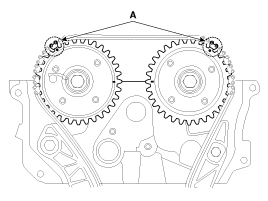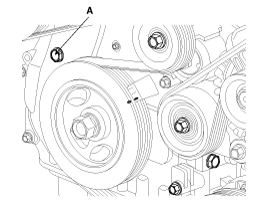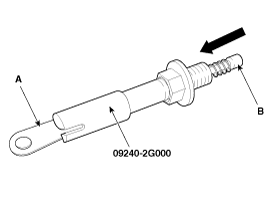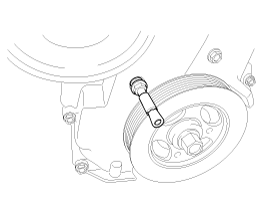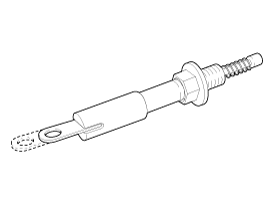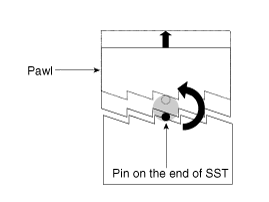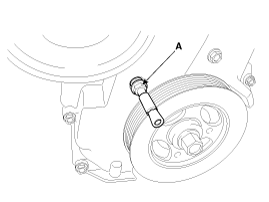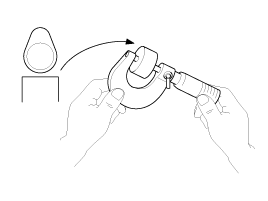Kia Optima Hybrid: Cylinder Head Assembly / Valve Clearance Adjustment
| Valve Clearance Inspection And Adjustment |
Inspect and adjust the valve clearance when the engine is
cold (Engine coolant temperature : 20°C (68°F)) and cylinder head is
installed on the cylinder block. |
| 1. |
Remove the cylinder head cover. (Refer to Timing system in this group) |
| 2. |
Set No.1 cylinder to TDC/compression.
|
| 3. |
Inspect the valve clearance.
|
| 4. |
Adjust the intake and exhaust valve clearance.
|
 CVVT & Camshaft Components and Components Location
CVVT & Camshaft Components and Components Location
Components 1. Camshaft bearing cap2. Camshaft front bearing cap3. Exhaust camshaft4. Intake camshaft5. Exhaust CVVT assembly6. Intake CVVT assembly7. Exhaust camshaft upper bearing8. Intake camshaft lower ...
Other information:
Kia Optima Hybrid (TF HEV) 2016-2020 Service Manual: Heated Oxygen Sensor (HO2S) Description and Operation
Description Heated Oxygen Sensor (HO2S) consists of zirconium and alumina and is installed both upstream and downstream of the Catalytic Converter. It varies in accordance with the air/fuel ratio. The sensor must be hot in order to operate normally. To keep it hot, the sensor has a heater which is controlled ...
Kia Optima Hybrid (TF HEV) 2016-2020 Service Manual: Components and Components Location
Components Location 1. Fuel Tank2. Fuel Pump3. Fuel Filter4. Fuel Pressure Regulator5. Canister6. Auxiliary Canister7. Fuel Tank Air Filter8. Fuel Tank Band9. Fuel Filler Hose10. Natural Vacuum Leakage Detection (NVLD)11. Fuel Level Sender (FLS)12. Ventilation Hose13. Vapor Tube14. Fuel Pump Plate Cover ...


